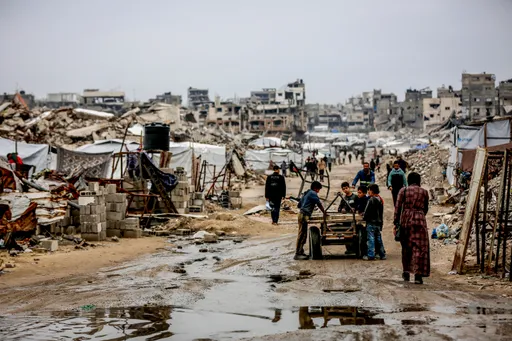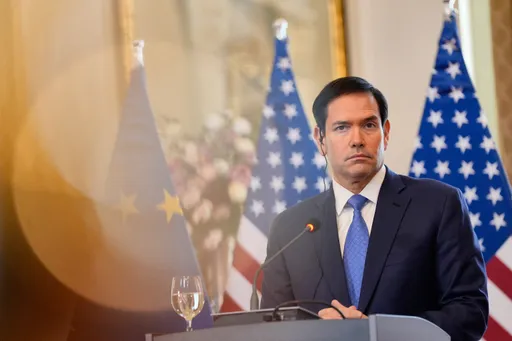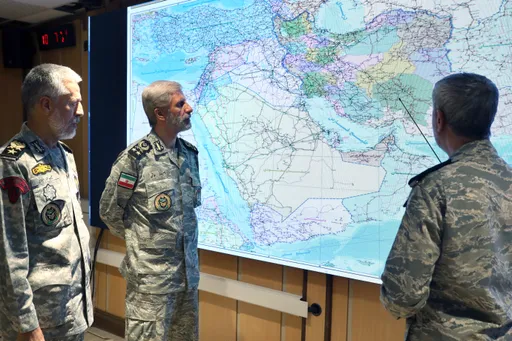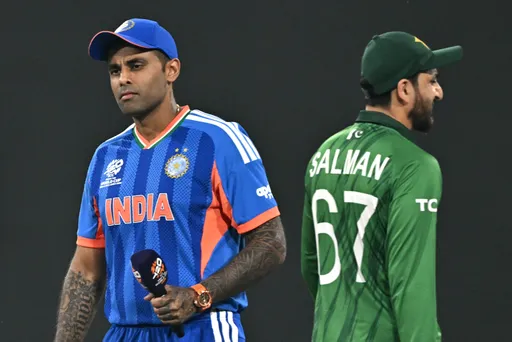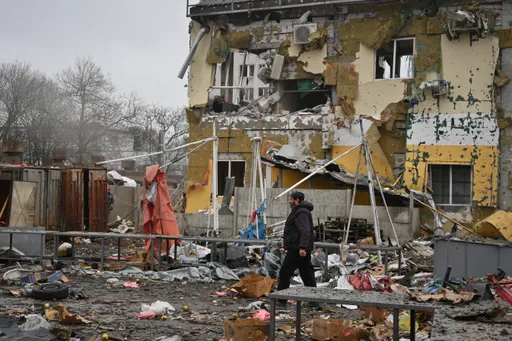JAKARTA - Indonesia goes to polls on Wednesday, with more than half of its eligible voters comprising young people.
Like their peers in other parts of the world, this demographic is no stranger to social media platforms — such as TikTok, Instagram and X (formerly known as Twitter) — and it has been using the apps to stay updated with the latest election news and information about the candidates.
With a population of more than 270 million, Indonesia is the world’s largest Muslim-majority country. It has over 204 million registered voters, including more than a million Indonesians who will vote from other countries. The majority of the total electorate is aged between 17 and 40.
Aulia "Aul" Rahman, 23, is among those young voters.
A resident of Bandung, the capital of Indonesia’s most populous province of West Java, he spends almost three hours every day scrolling across social media.
These days, he relies on X to get updates on the election and learn about his preferred presidential candidate who he was reluctant to reveal to TRT World.
But Rahman, who has a bachelor’s degree in public administration, says the online exposure can be tiring because of the constant “arguments and unhealthy discussions that are really stressful.”
It’s not just the young who are throning social media ahead of the crucial election, which will see President Joko Widodo stepping down after his two terms in office.
Presidential candidates including Anies Baswedan (former governor of Indonesia’s capital Jakarta), Prabowo Subianto (Indonesia’s current defence minister) and Ganjar Pranowo (former Central Java governor) regularly update their social media accounts to address their supporters.
Yet Rahman does not entirely trust everything he sees on social media feeds.
Realising that social media had "a massive impact to influence" users' voting decisions, he regularly cross-checks facts with other sources like Bijak Memilih (Vote Wisely) so that he has a more informed and unbiased understanding.
Amid Indonesia’s constant stream of social media posts, Bijak Memilih — set up in early 2023 — seeks to inform Indonesian voters, some of whom are anxious about the future.
Its website provides election-related insights — from the track record and ideas of presidential candidates to summaries of the past televised presidential debates.
Made up of around 40 Indonesian members and many more volunteers from all over Indonesia, it is an independent initiative by the Jakarta-based public policy community organisation Think Policy and What Is Up, Indonesia? educational Instagram page.
Bijak Memilih’s communications lead Yosifebi "Yosi" Ramadhani said some young voters felt politics is "something hard to understand, it feels very inaccessible."
“Why are they afraid? Because they want to make the right decision,” she told TRT World.
Bijak Memilih, too, has an online presence: over 90,000 followers on Instagram, over 8,000 TikTok followers, and more than 22,000 X followers.
And it's not all about serious facts and figures. One of its Instagram posts, for instance, poked at Prabowo’s “must set an example” remarks during a televised presidential debate in January, labeling the post as “the burden of the first child.”
Another Bijak Memilih’s Instagram post imitates the meme of a mother who prefers her one child over the other who is drowning. The drowning kid symbolises Indonesia’s legislative poll and the kid held by the mother being the presidential election, underscoring how Indonesians generally focus on the latter and not the former.
And it’s not just the activists who are having fun. Ordinary Indonesians have jumped on to the bandwagon.
One X user posted a photo of someone holding a clothes hanger like mothers do when their children are late with a line saying that it was Baswedan waiting for his running mate Muhaimin Iskandar to come home after finishing the vice presidential debate. Some people had criticised Iskandar’s performance at the debate.
In a social media post, presidential candidate Pranowo with his running mate Mahfud MD wore “Top Gun”-style bomber jackets and glasses, trying to show their fun side that could woo in young voters.
Subianto's dancing videos and AI-made cartoons are widespread on social media. Meanwhile, Baswedan went on TikTok to address his supporters.
Ramadhani of Bijak Memilih said the young fan base of K-Pop and Taylor Swift is turning political content into relatable jokes.
“We can see how it motivates them from the jokes to talk even deeper into the issue, for example, about the candidates and others. It creates a community-based discussion,” she said.
“But that becomes problematic if, for example, it is not continued into a more important discussion,” she said. “How do you follow up those fun aspects into a deeper conversation?”
Meanwhile, although classified as young voters, some age groups have different life experiences.
Millennials, although very young at the time, experienced the rule of the late dictator Soeharto for more than three decades before he stepped down in 1998 after mass protests.
Gen Z have encountered different experiences.
"(They) have different starting points. They have their own perception about democracy, so we also have to fill (their understanding) with substance," said Mouliza Donna Sweinstani, a political researcher at Indonesia’s National Research and Innovation Agency (BRIN).
Sweinstani found some young voters were active on social media by commenting or making posts go viral, although their online activities might not translate into real-world actions.
“It seems like there is a difference between those in the real world and those in cyberspace, but indeed social media is a very unique channel of political participation for young people today,” she told TRT World.
Yet Ramadhani of Bijak Memilih said issues that mattered to young Indonesians included employment and the need to equip them with necessary skills, as first-time voters — the minimum age is 17 — would enter the job market.
Such voters were also concerned about the information reliability they saw online, as they became exhausted by the rise in misinformation and disinformation.
Eradication of corruption was another key point, as citizens want their taxes to be used more wisely, with several government ministers spending time in jail for corruption.
For Rahman, the fresh graduate now based in Bandung, Indonesia’s next president should be capable of representing Indonesia on the global stage.
Social media has indeed helped him choose the best presidential candidate — in his view.
"I pay attention to this issue because I believe the face of our president will be the face of our country. I want to have a president that understands global issues and knows how to position our country’s stances," he told TRT World.
"Therefore, in my perspective, other nations will see us as a strong nation because we have a leader (with a) bold character. And obviously, I’ll elect a candidate that obeys our law and legislation processes," he said.











